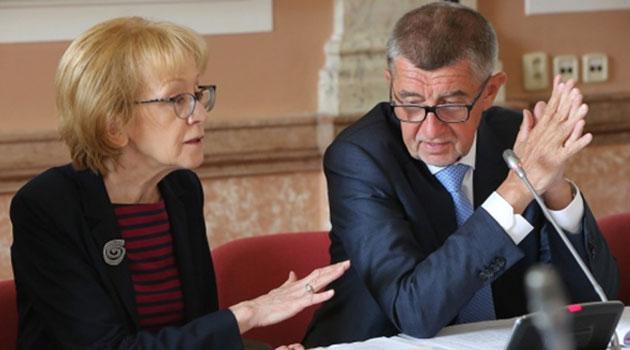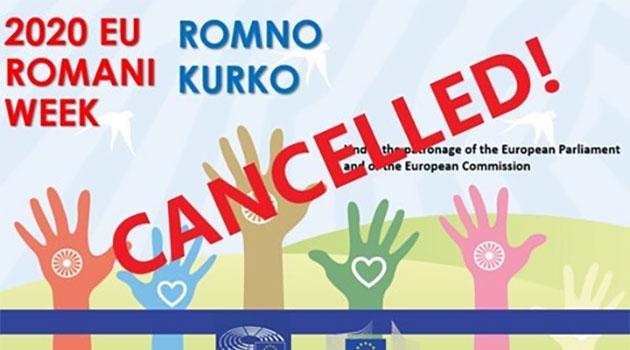Czech Govt Human Rights Commissioner expects new Roma strategy to be adopted by the end of January

Czech Government Human Rights Commissioner Helena Válková will be sending a working version of the country’s Roma strategy for 2021-2030 to Czech Prime Minister Andrej Babiš to sign tomorrow, and if he does, the material will be submitted to the interministerial commenting process and the Government should approve it at the end of January. Válková announced the news in an interview for ROMEA TV.
Several volunteer civil society members of the Czech Government Council for Roma Minority Affairs, nonprofit organizations, and representatives of various ministries have been working since June on the new strategy for the next 10 years; it is comprised of an analytical part accompanied by logistical frameworks describing the specific tasks for each ministry. The measures and tasks described there concern, for example, the areas of combating antigypsyism, education, emancipation of Romani people, employment, health care, housing, and the implementation of the Strategy itself.
“We have prepared a working version of the Strategy. Of all the strategies we had to prepare, this one was the hardest,” Válková told ROMEA TV.
“On Human Rights Day, 10 December, I will submit this strategy to the Prime Minister for his signature, and if he signs this material, it will be sent to the interministerial commenting procedure on 11 December,” Válková said, adding that she considers the 10-day commenting process to be crucial because some ministries may not be satisfied with some of the measures and tasks proposed.”During the first week of January we will begin dealing with the comments, and my ambition is that the Strategy will be sent to the Government for approval by the close of January.”
Válková recalled that the strategy covers various areas with specific measures and tasks, such as the fact that by 2022 the post of a Czech Government Commissioner for Romani Affairs is meant to be instituted. A contentious aspect for the ministries, according to the Human Rights Commissioner, may be the strategy’s reference to Article 4, point 8 a) of the agreement on partnership between the Czech Republic and the European Union.
That point should arrange for the support provided over the next 10 years to actually target Romani people such that it will be possible to exactly determine what kind of progress has been made among the Roma, to determine how many Romani people the aid has affected, and to determine how much the assistance cost. “The Romani minority is specific culturally and historically, so we must take a different approach there,” the Human Rights Commissioner said, expressing criticism of how financing for Romani integration was used during the previous 10-year period.
“Do you have the feeling the situation is better? I do not,” she said, adding that it is necessary to involve Romani people themselves in decision-making and in making use of the financing for the next 10 years.
Válková also said the amount of financial resources available and even the very creation of the position of a Government Commissioner for Romani Affairs could be negatively influenced if just a small number of Romani people state their Romani nationality during the upcoming census. “I will be very active in that regard. In January I will be sending a letter to national minority representatives. I believe that everybody will reflect on that in March, when the census is meant to be conducted,” she said.
The new strategy follows the previous one approved by the Government on 23 February 2015, and just as during the existing program period 2014-2020, during which adoption of a strategy was a so-called preliminary thematic condition for drawing monies from the European Structural and Investment Funds (ESIF), so the new programming period 2021-2027 will count on a so-called basic thematic condition focused on the inclusion of Romani people. In addition to drawing from the previous strategy, this new one also follows the recommendations of crucial documents from the EU and other international organizations, e.g., the “Report on the evaluation of the EU Framework for National Roma Integration Strategies up to 2020“, or recommendations from the Council of Europe on fulfilling the Framework Convention for the Protection of National Minorities and the European Charter of Regional and Minority Languages.
Creation of the Roma Strategy for 2021-2030
The Office of the Czech Government Council for Roma Minority Affairs and the Secretariat of the Czech Government Council for National Minorities of the Office of the Government of the Czech Republic prepared a first draft of the new strategy. At the end of April 2020 it was opened for public consultation.
That consultation was meant to take the form of an online questionnaire. Several civil society members of the Czech Government Council for Roma Minority Affairs criticized that approach, as did nonprofit organizations.
In their view, Romani people had been insufficiently involved in drafting the text of the strategy and it had been submitted to them as a fait accompli. Nonprofit organizations led by the RomanoNet umbrella organization, which brings together several significant Romani and pro-Romani organizations, then called for the strategy to be reworked and said they were interested in contributing to it.
The first common meeting of NGO working groups on the strategy was held on 24 June 2020 at the Impact Hub in Prague, where revisions and proposals of new aims and measures were made. Until the close of November a series of common video conferences was conducted to formulate the content of the logistical frameworks and the specific tasks for each ministry.
The final form of the analytical section was also drafted. The entire material will now be submitted to the Prime Minister for his signature.
